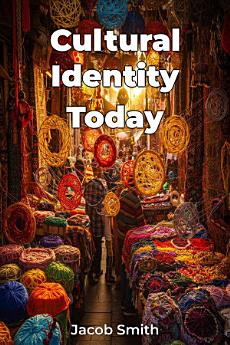Cultural Identity Today
About this ebook
The book uniquely argues that globalization creates opportunities for cultural exchange and the formation of hybrid identities. It avoids simplistic narratives of cultural loss. It examines case studies from around the world, analyzing how globalization impacts national identities, ethnic communities, and political movements. For example, the rise of identity politics can be seen as a response to the perceived threat of cultural homogenization, with groups asserting their unique cultural values.
Structured in three parts, the book first lays theoretical foundations using sociological studies and demographic data. It then moves to specific examples across different regions. Finally, it analyzes the political implications of cultural identity in a globalized world, discussing multiculturalism and social conflicts. This approach provides a balanced, evidence-based analysis of the challenges and opportunities that globalization presents for cultural identity.








